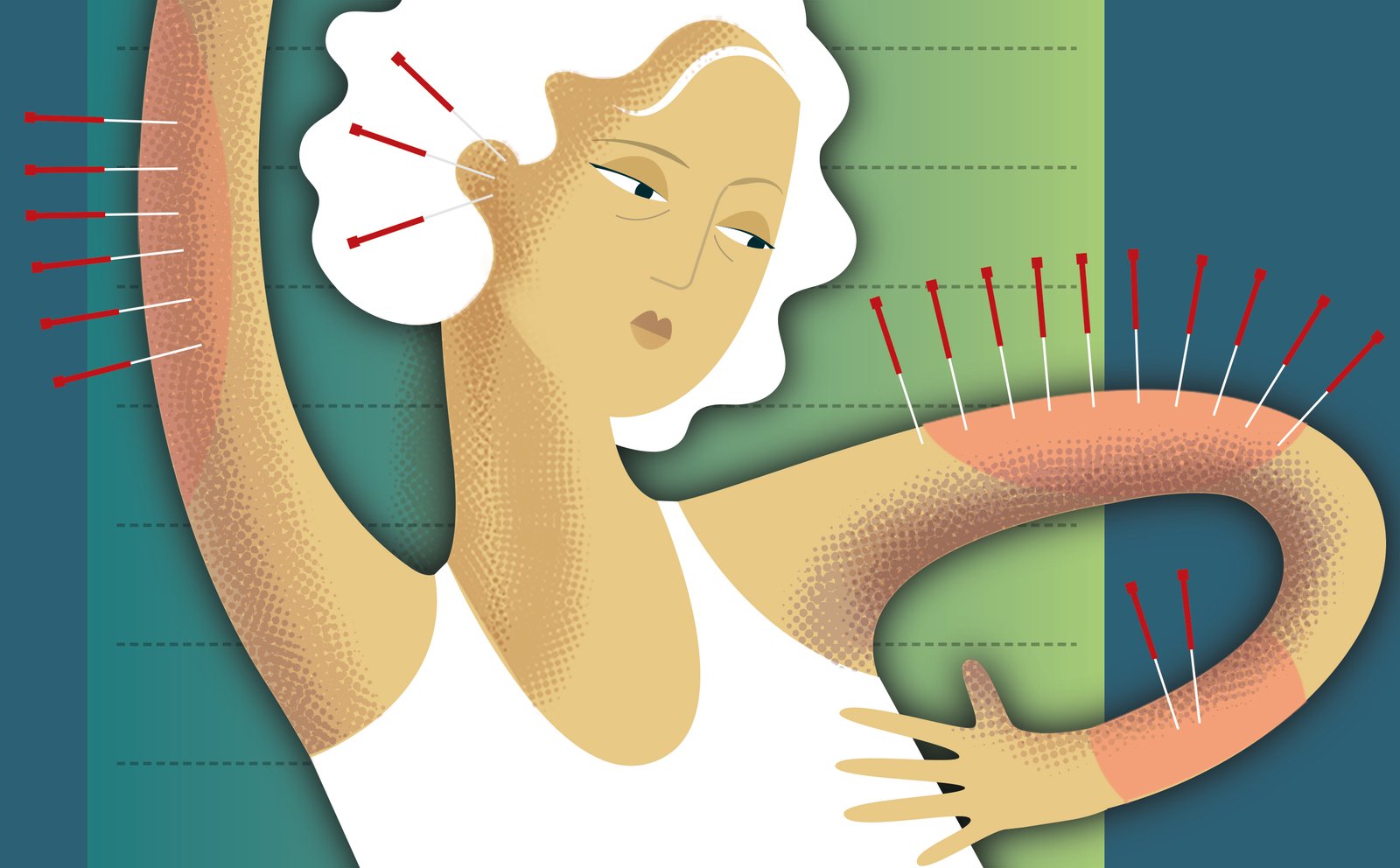“Your body feels so good”
How do participants feel about using acupuncture to relieve AI pain?
Jodi Monroe, a 52-year-old local land trust executive and “aging athlete” from Mount Vernon, Washington, said she thought the aromatase inhibitors she was taking had caused severe bone pain and that her cancer might have returned.
“I’m a tough person, mentally and physically,” she says, “and I never complain. And I finally called the cancer center because I was sure the cancer had spread to my bones. The pain was so bad I couldn’t attend meetings. My back would hurt and I’d wake up at 3:30 in the morning. It was unbearable.”
Her oncologist, Gralow, told Monroe about the acupuncture trial, and, preferring a non-drug treatment, she gladly agreed.
“I don’t do oxycodone or anything like that,” she said. “I don’t even do ibuprofen. Everyone tends to take medication, but I don’t deal with it that way.”
She was randomly assigned to one of the study arms, but did not yet know whether she was receiving real or fake acupuncture. But the treatments reduced her pain so much that Monroe continued to see the same acupuncturist after the study ended.
“I went diligently, and for me the results were the same, so I think I got the real deal,” she said. “After radiation or chemo I didn’t need someone to drive me home, but after acupuncture I needed a driver, because it put me in such a good state of mind. I felt like I was floating, and that feeling continued after I left. My body felt good, my mind was at peace. I got that from day one.”
Acupuncture as an alternative to opioids
Both Unger and Greenlee said non-pharmacological approaches like acupuncture are especially important given the current opioid epidemic.
“There’s been a lot of concern recently about patients becoming addicted to painkillers like opioids,” Unger said. “Between these two trials, [Cymbalta and acupuncture]”Patients now have pharmacological and non-pharmacological treatment options, and SWOG has made a significant contribution to advancing the science of symptom control.”
Acupuncture clinical trials have also helped promote the use of integrative therapies in cancer centers.
“In my experience, these alternative therapies have always been questionable,” he said, “but they can’t be dismissed without consideration. They are now being thoroughly and rigorously reviewed. Some work, some don’t – that’s what we’ve found so far.”
Given the positive results, will acupuncture soon become the clinical standard?
“This is the type of study that will provide strong evidence to guide treatment scope decisions and potentially lead to acupuncture becoming a standard treatment option,” Unger said.
The research was funded by the National Institutes of Health’s National Center for Complementary and Integrative Health, the Office of Women’s Health Research, and the Division of Cancer Prevention at NIH/National Cancer Institute.

